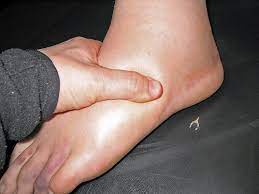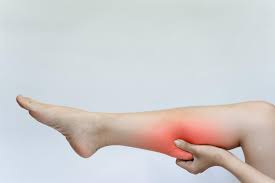Postpartum Warning Signs: Recognizing Hemorrhaging, Headaches, and More
Postpartum warning signs encompass a spectrum of symptoms that new mothers should be attentive to following childbirth. These signs indicate potential complications requiring urgent medical attention. Understanding postpartum warning signs is crucial for new mothers as they navigate the challenges of childbirth and early motherhood. Recognizing symptoms like hemorrhaging, severe headaches, and dizziness can help ensure prompt medical attention and proper care during this sensitive time. Please keep reading for details on the following topics:
Warning signs in the postpartum period
- Hemorrhaging
- Severe Headache
- Dizziness
- Vision Changes
- Fever
- Swelling to the Hands and Face
- Suicidal or Homicidal Ideations
- Difficulty Breathing
- Chest Pain
- Heart Racing
- Vomiting
- Severe Abdominal Pain
- Calf Pain
- Feeling Tired and Weak

Hemorrhaging is a serious medical condition that occurs when blood vessels rupture and cause excessive and uncontrolled bleeding. It can lead to significant health complications, and even death if not treated in a timely manner. Common causes of hemorrhaging include physical trauma, medical conditions such as blood clotting disorders, and certain medications. Treatments for hemorrhaging involve stopping the bleeding, controlling blood pressure, replacing lost fluids and blood, and managing any underlying medical conditions or issues. It is important to seek medical attention immediately if you suspect you may be experiencing signs of hemorrhaging.
Manifestations of hemorrhaging
Heavy bleeding refers to an excessive flow of blood, which can occur after childbirth and is a cause for concern.
Passage of large pieces of clots and tissue from the vagina indicates the expulsion of blood clots and tissue, which can accompany heavy bleeding and may signify complications such as retained placenta or uterine bleeding.
Soaking a full pad with blood within a few minutes suggests a rapid and significant loss of blood, indicating a potentially serious issue requiring immediate medical attention, as it can lead to complications like hemorrhage or shock.

It is important for expecting and new mothers to be aware of the potential postpartum health issues that can arise. One such issue is severe headache. Postpartum headaches can be severe and debilitating for new mothers. Severe headaches during the postpartum period are usually caused by hormonal changes, dehydration, stress, and fatigue. If you are experiencing severe headaches after giving birth, it is a good idea to talk to your doctor to identify the root cause and discuss the best possible treatment options.
Headaches which worsens or recurs: suggests that the headache either intensifies in severity over time or returns after a period of relief. This pattern may indicate an underlying condition that requires medical attention, as persistent or recurring headaches could be a sign of a more serious issue.
Does not alleviate after treatment with medication and fluid intake: indicates that the headache persists despite efforts to manage it with pain-relieving medication and adequate hydration. This lack of response to treatment suggests that the headache may be caused by a condition that requires further evaluation by a healthcare professional.
Pain starts suddenly: suggests that the headache comes on abruptly without warning. Sudden onset headaches can be concerning as they may be indicative of conditions such as migraines, cluster headaches, or even more serious issues such as a hemorrhage or stroke.
Throbbing to one side of the head: describes a specific type of headache characterized by a pulsating or throbbing sensation, often localized to one side of the head. This type of headache is commonly associated with migraines and can be accompanied by other symptoms such as nausea, sensitivity to light or sound, and visual disturbances.
Blurred vision or dizziness: are additional symptoms that may accompany headaches and could signify complications or underlying health issues. Blurred vision and dizziness may be indicative of neurological or vascular issues and should prompt a thorough medical evaluation to determine the cause.
Dizziness

Dizziness postpartum affects many new mothers, from feeling lightheadedness to full-blown vertigo. It is a common symptom of the postpartum period, typically caused by hormonal fluctuations and physical changes after giving birth. While dizziness can be alarming and uncomfortable, it is generally harmless and can be managed with lifestyle changes. Postpartum dizziness is a common but often overlooked symptom of the birthing process. While the exact cause is not known, dizziness may be caused by changes in hormones, dehydration, or other physical changes such as loss of blood. It is important for new mothers to be aware of the potential for dizziness during the postpartum period, as this can have an impact on their ability to care for themselves and their newborns.
Disorientation refers to a state of confusion or feeling lost, where an individual may have difficulty understanding their surroundings or knowing where they are.
Confusion is a mental state characterized by a lack of clarity or understanding. It can manifest as difficulty concentrating, following instructions, or making decisions.
Fainting or passing out involves a sudden and temporary loss of consciousness, often caused by a decrease in blood flow to the brain. Fainting can result in a brief period of unconsciousness, during which the person may collapse or lose control of their body temporarily.
Lightheadedness is a sensation of feeling faint or dizzy, often accompanied by a feeling of weakness or instability. It can occur due to various factors, including low blood pressure, dehydration, or hyperventilation.
Memory loss refers to the inability to recall past events or information. It can range from mild forgetfulness to severe memory impairment and may be temporary or permanent. Memory loss can be caused by various factors, including age-related cognitive decline, neurological conditions, or trauma.
The postpartum period is a time of profound physical and emotional changes for new mothers. One of the most striking changes is the shift in vision that can occur. During this time, new moms may experience a variety of vision changes, ranging from blurry vision to light sensitivity to dry eyes. Understanding these changes and the steps you can take to manage them can help you preserve your vision and ensure that you adjust to the new demands of postpartum life.
Flashes of bright light or spots refer to sudden, brief bursts of light or spots in a person’s vision. These flashes can appear as streaks, dots, or squiggles and may be caused by various factors such as retinal detachment, migraines, or ocular migraines.
Vision loss for short periods of time describes temporary episodes of partial or complete loss of vision that occur suddenly and last for a brief duration. This condition, known as transient vision loss or amaurosis fugax, can be a sign of underlying vascular or neurological issues and requires immediate medical attention.
Double vision or diplopia is a condition in which a person sees two images of a single object. It can occur in one or both eyes and may be caused by problems with the eye muscles, nerves, or brain. Double vision can significantly impact a person’s ability to perform daily tasks and may indicate serious underlying health conditions.
Blurred vision refers to a loss of sharpness or clarity in vision, resulting in difficulty seeing fine details. Blurred vision can occur in one or both eyes and may be temporary or chronic. It can be caused by various factors such as refractive errors (e.g., nearsightedness, farsightedness), eye strain, dry eyes, or underlying health conditions such as diabetes or cataracts.

Fever is a temperature over 100.4°F (38°C). Postpartum fever is an often overlooked symptom of childbirth that can have a major impact on a new mother’s recovery. It is important to be aware of the signs and symptoms of postpartum fever, as well as the potential risks and treatment options. It is important to recognize postpartum fever and take the necessary steps to treat it in order to ensure a safe and successful recovery for the new mother.
Swelling to the hands and face

Postpartum swelling to the hands and face can be a common and normal occurrence for many women after giving birth. Swelling is caused by an increase in fluid that is retained in the body due to an increase in hormones. This swelling can cause discomfort and can last for several weeks after childbirth. Understanding what causes postpartum swelling, and how to manage it, is essential for a comfortable postpartum recovery.
Manifestations of swelling
These refer to visible signs or symptoms of fluid buildup in the body tissues and can include:
-
Difficulty bending the fingers or wearing rings due to swollen hands and fingers: This indicates swelling in the hands and fingers, which can cause tightness and difficulty in movement. It may also lead to discomfort when wearing rings or other jewelry.
- Inability to fully open the eyes due to swollen face: Swelling in the face can lead to puffiness and tightness, restricting the ability to fully open the eyes. This can affect vision and may be accompanied by discomfort or pain.
- Puffy eyes: Puffiness around the eyes is a common manifestation of swelling, often caused by fluid retention in the tissues surrounding the eyes. This can give the appearance of swollen or baggy eyelids, making it difficult to open the eyes fully.
-
Loss of feeling to the lips due to swollen mouth and lips: Swelling in the mouth and lips can compress nerves and reduce sensation, leading to numbness or tingling. This can affect speech, eating, and overall comfort.
Suicidal or homicidal ideations

Postpartum psychosis is a complication of postpartum depression. It is a serious mental health issue that can affect any woman after the birth of her child. Unfortunately, in extreme cases, it can lead to suicidal or homicidal ideations. It is essential to be aware of the signs and symptoms of postpartum depression, and to get help as soon as possible if you or someone you know is struggling. We will discuss the overview of suicidal or homicidal ideations during postpartum and the importance of seeking help.
Thoughts about harming self or baby are intrusive and distressing thoughts that may occur during the postpartum period, often associated with conditions like postpartum depression or anxiety. These thoughts can be alarming and may require immediate attention from a healthcare professional to ensure the safety of both the mother and the baby.
Feelings of sadness, hopeless, describe the emotional state of the individual, characterized by a pervasive sense of sadness, despair, and a lack of hope for the future. These feelings are common symptoms of postpartum depression and can significantly impact the mother’s well-being and ability to care for herself and her baby.
Unable to control things reflects a sense of helplessness or powerlessness in managing one’s emotions or circumstances. This loss of control may contribute to feelings of anxiety, stress, or overwhelm, particularly during the challenging postpartum period.
Worrying all the time describes persistent and excessive worry or anxiety about various aspects of life, including the health and well-being of oneself and one’s baby. This constant worrying can be exhausting and overwhelming, interfering with daily functioning and contributing to mental health issues such as postpartum anxiety.
Difficulty breathing

Having difficulty breathing during postpartum is a common issue that many new mothers face. It can be caused by a variety of factors, including hormone changes, physical changes, and lifestyle changes. We will explore the different symptoms of difficulty breathing during postpartum.
Sudden shortness of breath refers to a rapid onset of difficulty breathing, where a person may feel like they are unable to take in enough air. This sensation can be alarming and may be accompanied by feelings of suffocation or anxiety. Sudden shortness of breath can have various causes, including respiratory issues, heart problems, anxiety attacks, or other medical conditions.
Tightness to the chest or throat describes a sensation of constriction or pressure in the chest or throat area. This feeling can be uncomfortable and may make it difficult to breathe deeply. Tightness in the chest or throat can be a symptom of conditions such as asthma, bronchitis, allergies, or anxiety.
Difficulty breathing when laying flat on the back refers to the experience of respiratory discomfort or shortness of breath when in a supine position. This symptom, known as orthopnea, can occur due to fluid accumulation in the lungs (pulmonary edema), heart problems (such as heart failure), or other respiratory conditions. Difficulty breathing when lying flat may prompt individuals to prop themselves up with pillows or sleep in a more upright position to alleviate symptoms.
Chest pain is a common symptom experienced by many people, ranging from mild discomfort to more severe pain. It can occur in the chest wall, the chest cavity, or the area around the heart. Chest pain can be a sign of a number of different conditions, including heart attack, pneumonia, musculoskeletal issues, and acid reflux. The causes of chest pain can be difficult to diagnose and treatment may vary depending on the underlying cause. With proper diagnosis and treatment, chest pain can be managed to provide relief and improve quality of life. Manifestations of chest pain:
Tightness of pressure to the chest
Pain radiating to the back, neck, or arm
Heart racing
Postpartum is an exciting and often overwhelming time for new mothers, but it can also be accompanied by a phenomenon known as “heart racing”. This is a condition in which the heart rate increases in response to certain triggers, such as stress or fear, and can make the new mother feel anxious or panicked. In this article, we will provide an overview of heart racing during postpartum, including its causes, symptoms, and treatments. We will also provide tips on how to manage this condition and how to support a new mother who is experiencing it.
Rapid heartbeat refers to an elevated heart rate, where the heart beats faster than normal. This can be perceived as palpitations or a sensation of the heart pounding in the chest. Rapid heartbeat can occur due to various factors, including physical exertion, stress, anxiety, caffeine consumption, or underlying medical conditions.
Pounding sensation to the chest describes a strong, forceful sensation of the heartbeat that is felt in the chest. This feeling may be accompanied by palpitations or rapid heartbeat and can be concerning for individuals experiencing it. A pounding sensation in the chest can be a symptom of heightened emotional states, such as anxiety or panic attacks, as well as certain cardiac conditions.
Irregular heart beat refers to an abnormal rhythm of the heart, where the heartbeat is irregular or inconsistent. This can manifest as skipped beats, extra beats, or a fluttering sensation in the chest. Irregular heartbeats, also known as arrhythmias, can be caused by various factors, including underlying heart conditions, electrolyte imbalances, or stimulant use.
Skipped heartbeats are brief pauses or interruptions in the heartbeat, where the heart seems to skip a beat before resuming its normal rhythm. Skipped heartbeats can be triggered by stress, caffeine, fatigue, or hormonal changes, among other factors.
Postpartum vomiting is an unpleasant but normal occurrence for many women. It can happen during the first few days or weeks after giving birth, when the body is still adjusting to the dramatic changes that come with childbirth. While they are often temporary and benign, persistent or severe symptoms should be addressed with a healthcare professional to determine the underlying cause and appropriate management. Associated symptoms include:
Feeling nauseous refers to the sensation of discomfort or unease in the stomach, often accompanied by the urge to vomit. Nausea can have various causes, including digestive issues, viral infections, motion sickness, hormonal changes, or stress. In the postpartum period, nausea may be related to hormonal fluctuations, fatigue, or changes in diet and lifestyle.
Dry mouth describes a condition where there is a lack of moisture or saliva in the mouth, leading to feelings of dryness, stickiness, or discomfort. Dry mouth can occur due to dehydration, mouth breathing, medications, hormonal changes, or underlying medical conditions. In the postpartum period, hormonal changes, dehydration, and fatigue may contribute to the sensation of dry mouth.
Abdominal pain is a common complaint during postpartum. It can range from mild discomfort to severe cramping and can be caused by many factors including physical trauma, hormonal changes, and stretching of the abdominal muscles. We will discuss the symptoms of postpartum abdominal pain.
Cramping to the abdomen refers to sharp or dull pains in the abdominal area, often resembling menstrual cramps. These cramps can occur due to the uterus contracting as it returns to its pre-pregnancy size, hormonal changes, or digestive issues. In the postpartum period, abdominal cramping is common as the body undergoes various physiological changes.
Sudden and constant pain which worsens describes abdominal pain that begins abruptly and persists continuously, intensifying over time. This type of pain may indicate a more serious underlying issue, such as infection, uterine complications, or gastrointestinal problems. It is important to seek medical attention if experiencing sudden and worsening abdominal pain after childbirth.
For cramps or after birth pains the use of prescription pain medication to alleviate discomfort from abdominal cramps or afterbirth pains. These medications, prescribed by a healthcare provider, can help manage pain effectively and promote postpartum recovery. Prescription medicine for pain reiterates the importance of using prescribed pain medication under the guidance of a healthcare provider to manage postpartum abdominal pain safely and effectively.
Warm tea refers to herbal teas, such as chamomile or peppermint tea, which may help relax the muscles and alleviate abdominal discomfort. Warm liquids can also promote relaxation and provide soothing relief from cramps or abdominal pain.
Hot water bottle to the abdomen involves applying heat to the abdominal area using a hot water bottle or heating pad. Heat therapy can help relax the muscles, improve blood flow, and reduce pain associated with abdominal cramping.
Laying on the abdomen suggests lying on the stomach, which may help alleviate abdominal discomfort for some individuals. However, this position may not be suitable for everyone, especially those who have recently given birth, had abdominal surgery or have underlying medical conditions. It’s essential to find a comfortable position that relieves pain without causing additional discomfort.
Seek medical advice for unusual symptoms emphasizes the importance of consulting a healthcare professional if experiencing unusual or concerning symptoms, such as severe or persistent abdominal pain, fever, abnormal bleeding, or other signs of complications. Prompt medical attention is essential for proper diagnosis and treatment of any underlying issues during the postpartum period.

As a new parent, one of the many physical changes you may experience is calf pain during postpartum. This can be a normal part of the body’s recovery process, but it is important to recognize the signs and know when to seek help.
Swelling, increased warmth, or tenderness to the calf describes symptoms often associated with deep vein thrombosis (DVT), a blood clot in the deep veins of the leg. Swelling, warmth, and tenderness in the calf area can indicate the presence of a clot, which requires immediate medical attention. In the postpartum period, women are at increased risk of developing DVT due to hormonal changes, immobility, and other factors related to childbirth.
Avoid traveling long distances with baby– Wait at least 5 or 6 weeks. Be sure to take frequent stops along the way to help blood circulation” suggests a precautionary measure to reduce the risk of DVT when traveling long distances after childbirth. Prolonged sitting or immobility during travel can increase the risk of developing blood clots in the legs. Waiting for at least 5 or 6 weeks allows the body time to recover from childbirth, reducing the risk of complications. Taking frequent breaks during travel helps promote blood circulation and reduces the likelihood of blood clots forming.
Feeling tired and weak

Postpartum can be a difficult transition for new mothers, both physically and emotionally. One of the most common physical discomforts experienced is feeling tired and weak. This exhaustion is caused by the drastic hormonal changes that take place in the body after childbirth, as well as the physical demands of caring for a newborn. Fortunately, there are several effective strategies that can help new mothers manage this fatigue, such as getting plenty of rest, eating well-balanced meals, and setting realistic expectations.
Lack of energy to accomplish tasks indicates a sense of fatigue or weakness that hinders a person’s ability to complete daily activities. In the postpartum period, lack of energy can result from hormonal changes, sleep deprivation, physical exertion, and the demands of caring for a newborn.
Not feeling rested enough after sleep suggests that despite getting sleep, the individual still feels tired and unrefreshed. This can be due to interruptions in sleep patterns, frequent nighttime awakenings to care for the baby, or sleep disturbances associated with postpartum physical discomforts or mental health issues.
Lack of sleep refers to a general state of sleep deprivation, where the individual is not getting enough restorative sleep. In the postpartum period, new parents often experience disrupted sleep schedules due to nighttime feedings, soothing the baby, or adjusting to the demands of parenthood.
Seizures are sudden, uncontrolled electrical disturbances in the brain that can lead to changes in behavior, movements, or consciousness. While seizures are not directly related to postpartum fatigue, they can occur in some cases due to underlying medical conditions, such as eclampsia or epilepsy. Seizures during the postpartum period require immediate medical attention.
If you experience any of these symptoms, it’s crucial to seek immediate medical attention to ensure your health and well-being. Don’t hesitate to call your healthcare provider or go to the nearest emergency room for evaluation and treatment.
Disclaimer: The information provided in this content is for general informational purposes only. It is not intended as medical or healthcare advice, diagnosis, or treatment. Always seek the advice of a qualified healthcare professional with any questions you may have regarding a medical condition or healthcare decisions. Postpartum warning signs Postpartum warning signs Postpartum warning signs Post partum warning signs Postpartum warning signs Postpartum warning signs Postpartum warning signs Postpartum warning signs Postpartum warning signs Postpartum warning signs Postpartum warning signs Postpartum warning signs Postpartum warning signs Postpartum warning signs Postpartum warning signs Postpartum warning signs Postpartum warning signs Postpartum warning signs

